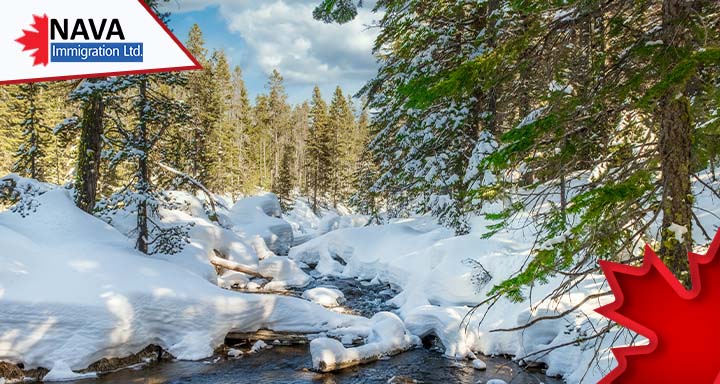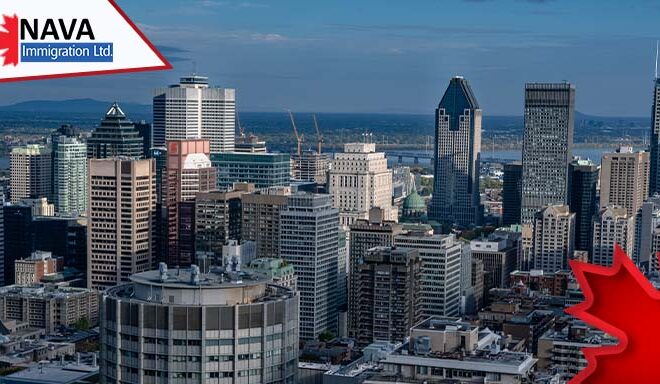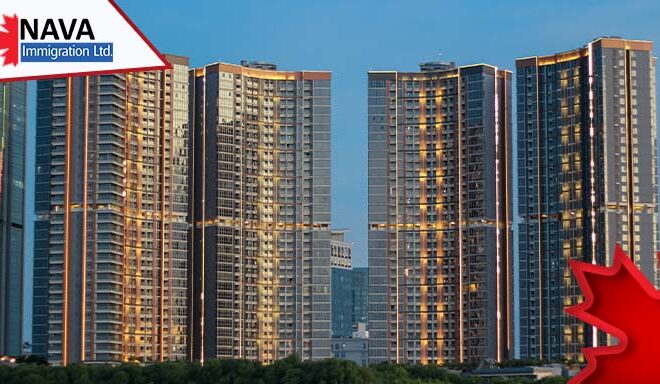Questions To Ask While Buying A Jacket For Winters In Canada
A good winter jacket is one of the most integral purchases you will make as a newcomer to Canada. Canadian winters can be quite harsh, with temperatures regularly dropping below 0°C, accompanied by freezing rain and chilly winds. Thus, if you are preparing for your first winters, read on this blog as we discuss the top questions to ask while buying a jacket for winters in Canada.
So, without further ado, let us begin!
What Temperatures Should One Expect?
Canada’s vast geography means that winter temperatures vary widely, so picking the right jacket depends on where you live. Before choosing, it is essential to research the typical winter conditions according to your region.
For instance, Vancouver in British Columbia experiences milder but wetter winters with lows dip of around 2°C.
Toronto in Ontario, however, has chiller winters, with January being the coldest month. Average temperatures range from -8°C to -1°C during that month.
On the contrary, cities in central and northern Canada face harsher conditions. Calgary, Alberta, sees January lows of -11°C, while Regina, Saskatchewan, can plummet to an average of -19°C in the same month.
Many winter jackets are designed for specific temperature ranges, so checking labels can help you make the best choice.
What Jacket Will Best Suit My Needs?
Another one of the top questions to ask while buying a jacket for winters in Canada is this.
Well, there are various types of winter jackets on the market, depending on the occasion, style, material, and insulation used.
Below are the most common types of jackets.
1. Parkas
Parkas are heavily insulated jackets with fur-lined hoods for added warmth. They are typically longer than standard jackets, extending to the hips, thighs, or even knees, depending on preference.
Parkas are usually made from water-resistant materials like nylon or polyester blends and filled with either down or synthetic insulation. While parkas excel at keeping you warm, their insulation and durable materials can make them heavier and bulkier than other winter jacket options. Despite this, their ability to protect against harsh winter climates makes them an outerwear staple in Canada.
2. Puffer Jackets
Puffer jackets, also known as quilted jackets or simply ‘puffers,’ are known for their signature quilted stitching, which creates a ‘puffy’ appearance. These jackets are available in various lengths and, depending on the design, may or may not come with a hood.
Like parkas, puffers are filled with down or synthetic insulation. The outer fabric used determines whether or not they are waterproof.
Moreover, puffer jackets tend to be lighter and more portable compared to parkas, making them ideal for layering, transitional seasons, or milder winter days when heavy insulation isn’t needed.
If you wish to have more mobility while keeping your core warm, puffer vests might be a good idea for milder days.
3. Wool Coats
Wool has natural insulating properties, and these coats often lend a sleeker silhouette for social occasions. They generally come in a number of lengths and colors, according to preference, and can be double-breasted and with belts. They do not feature hoods.
While wool coats offer a good degree of protection against the cold, they are not waterproof. That’s why they are best suited for milder winter days without rain or snow.
4. Shackets
They have the appearance of a shirt – with plaid being a popular option – while offering the warmth of a jacket.
Shackets usually have a button-down front and a collar. They also have pockets, which make them functional outerwear for transitional seasons like fall.
However, they are not waterproof and don’t come with hoods, making them impractical for cold winter days. Despite this, they are still popular options for layering or during transitional seasons.
5. Raincoats and Windbreakers
Windbreakers and raincoats are usually designed to shield you from wind and rain.
These are generally not insulated and do not offer the same level of heat as winter jackets, but they can be worn all year round for outdoor activities.
What Type Of Insulation Should One Look For In A Winter Jacket?
Another one of the top questions to ask while buying a jacket for winters in Canada is what kind of insulation should one look for in a jacket.
Well, there are two main types of insulation found in winter jackets, i.e., synthetic and down.
Down refers to the fine feathers found on birds like geese and ducks.
- Pros: Down generally offers greater warmth while being lightweight.
- Cons: More expensive, doesn’t perform well when wet, ethical reasons concerning animal welfare, hard to clean.
Synthetic implies materials such as polyester acting as insulation in the jacket.
- Pros: Water-resistant, more affordable, quick-drying, easy to clean and care for.
- Cons: Heavy and bulky
How Much Should One Spend On A Winter Jacket?
The price range for a winter jacket varies significantly according to material, insulation type, and brand.
Usually, you can find jackets anywhere between $100 and $1500.
1. Budget Winter Jackets ($300 and Less)
It’s possible to find good winter jackets, even on a budget.
Thrift stores are a great option for finding second-hand jackets at bargain prices. In Canada, Salvation Army Thrift Stores and Value Village are some options.
Other stores and brands that offer winter jackets under $300 include Winners, Marshalls, Columbia, Uniqlo, and Eddie Bauer.
2. Mid-Range Winter Jackets ($300 – $600)
Mid-range winter jackets could offer enhanced features, such as lightweight construction, down insulation, increased durability, and a wider range of design options.
Some brands to check out within this price range are The North Face, Aritzia, Point Zero, Patagonia, and Pajar.
3. Premium Options ($600 and Above)
It might be worth investing in high-performance outerwear if you are facing extremely cold temperatures or just looking to splurge.
These jackets often offer advanced waterproofing and windproofing. They also offer warmth without excessive bulk. Some brands known for offering high-quality options in this price range are Canada Goose, Rudsak, and Arc’teryx.
If you seek information on how to begin your Canada immigration application process, you can talk to our NavaImmigration experts at 1800-918-8490, or you can drop us an email at [email protected].





